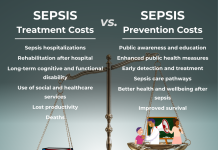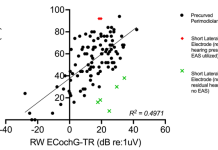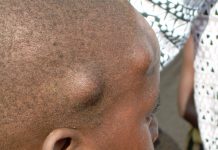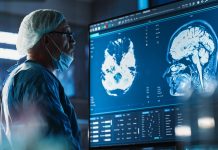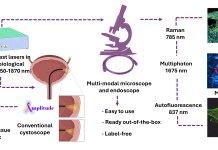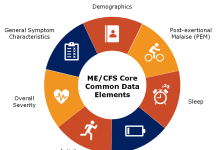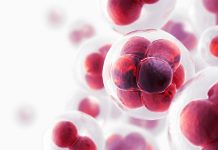Open Access Government produces compelling and informative news, publications, eBooks, and academic research articles for the public and private sector looking at health, diseases & conditions, workplace, research & innovation, digital transformation, government policy, environment, agriculture, energy, transport and more.
Home 2025
Archives
The challenge of determining the health risks of low-dose chemical exposures
Rebecca J. Wilson and Pamela J. Lein, explore whether the dose makes the poison or not. Here, they discuss the challenges of determining health risks associated with low-dose chemical exposures.
Lives and money: Understanding the true cost of sepsis in Canada
Kali Barrett, Victoria Chechulina, and Fatima Sheikh discuss the economic burden of sepsis in Canada and the economic rationale for implementing coordinated, national strategies to combat this often-overlooked disease.
Optimizing outcomes: The role of surgical technique and intraoperative factors in cochlear implant performance
Variability in cochlear implant performance remains a significant challenge for clinicians and patients. Contributors from Washington University School of Medicine investigate how surgical techniques and intraoperative adjustments can be refined to further optimize cochlear implant outcomes.
Novel treatments offer hope for neglected tropical diseases
This interview with Professors Achim Hoerauf and Marc Hübner explores their groundbreaking work, focusing on the development of novel drugs and the importance of collaborative partnerships in tackling these devastating diseases.
Microbiomes should be incorporated into The One Health Joint Plan of Action
The One Health Joint Plan of Action was created by major international organizations to tackle global health issues related to human, animal, plant, and environmental health. This article emphasizes the importance of integrating microbiomes into this framework to enhance health systems and prevention strategies.
Quantitative reasoning in higher education: The 5C Model
Quantitative reasoning enhances and lengthens lives. Professor Gregory Foley of Ohio University discusses how his team is improving QR instruction in U.S. higher education.
Ultrasound neuromodulation for treatment-resistant depression: A case for deep brain stimulation
Tiago Costa from Delft University of Technology discusses why ultrasound neuromodulation has significant potential to transform the treatment of depression.
Identifying potential exercise mediators
Dr Robert Wessells and his team at Wayne State University are researching exercise mediators and mimetics in fruit flies (Drosophila melanogaster) to explore how to provide the benefits of exercise to individuals who are unable to access it. Here, he shares what he has discovered during his research.
Novel imaging platform for early and precise cancer diagnosis
Regina Gumenyuk, Adjunct Professor at Tampere University, is exploring a novel imaging platform for early and precise cancer diagnosis. Read more about this exciting innovation here.
Common data elements to advance ME/CFS research
Standardizing data collection in ME/CFS research through Common Data Elements is a crucial step toward improving diagnosis, advancing treatments, and fostering collaboration across studies to accelerate progress in understanding this complex disease.
Amphibole asbestos as a public health risk in 2025: Autoimmune disease
Despite efforts to minimize exposure, deaths from asbestos-related diseases remain high. A recent review emphasized the importance of evaluating different mineral groups and pointed out that exposure to amphibole asbestos is linked to higher rates of autoimmune diseases. Jean C. Pfau and Brenda J. Buck discuss the urgent need to address this public health risk more effectively.
Mental health research: The healing power of indigenous drumming
Gilles Comeau, Senior Scientist at the University of Ottawa, Institute of Mental Health Research at The Royal, explores the healing power of Indigenous drumming
Drumming...
Consideration of key issues in positioning early intervention for eating disorders
Tracey Wade from the Flinders University Institute for Mental Health and Wellbeing outlines several key issues to consider in developing successful early intervention approaches for people with disordered eating and who are at risk of developing an eating disorder.
Bioinformatics into TB surveillance: A new approach to an ancient foe
David Ussery, a Professor in the Department of BioMedical Informatics at UAMS, and his Ph.D. student Brian Delavan discuss bioinformatics into TB surveillance, presenting a new approach to tackling this ancient foe.
Process intensification: A game changer for the pharma market
Deborah McElhone, Head of Sustainability (Pharma) from CPI, argues that process intensification is a game changer for the pharma market.
Feline coronavirus and feline infectious peritonitis (FIP) – Russian roulette for your pet
Utilising Machine Learning on clinical datasets could help to crack the enigma of feline infectious peritonitis diagnosis.
Personalized medicine in oncology: Small molecule inhibitors, biologics and immunotherapies
Priya Hays, PhD, CEO of Hays Documentation Specialists, discusses innovations and advancements in the development and evaluation of personalized cancer therapies.
Stem cell exhaustion and its role in healthy aging
Scientist Sarallah Rezazadeh from the Icahn School of Medicine explores the molecular mechanisms behind adult stem cells as we age.
Understanding the link between PICC and myopic complications
Dr Adèle Ehongo discusses the pathogenesis of peripapillary intra-choroidal cavitation and its implications for myopic complications.
Prenatal cannabis exposure and its lasting impact on memory
Professors Miranda Reed from Auburn University and Vishnu Suppiramaniam from Kennesaw State University have studied how prenatal cannabis exposure affects brain development and cognitive functions, including memory.


